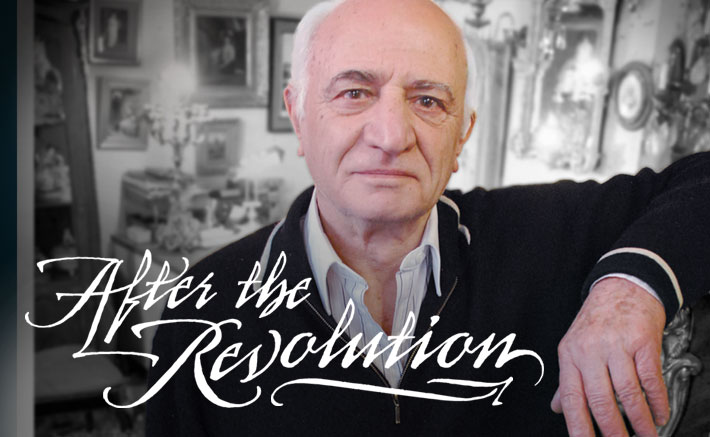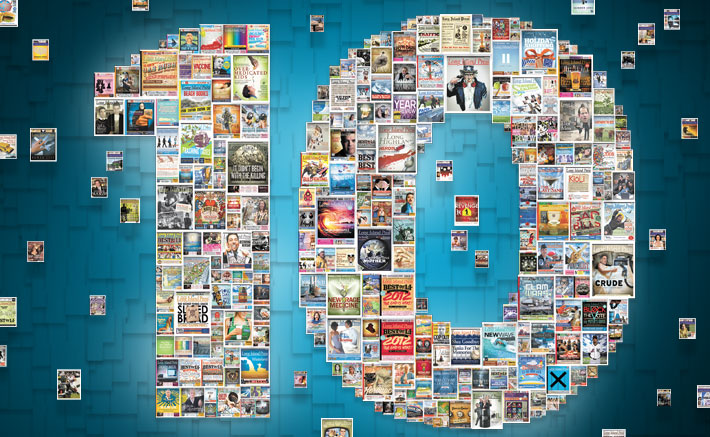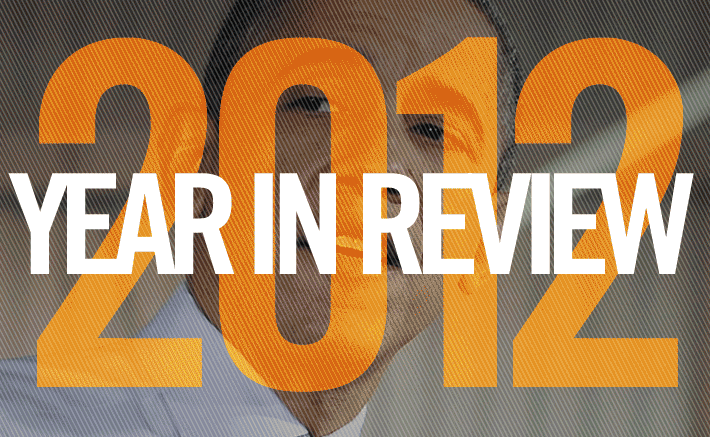
Old World, New World

Youhana Sabi
Youhana Sabi, the owner and sole employee of Sabi Antiques, could be considered the prime example of the Great Neck American citizen: His small antique shop is right on Middle Neck Road, just two blocks north of the Great Neck Long Island Rail Road station. His house of 25 years is only two blocks north, tucked into the tasteful but modestly sized residences of Great Neck Estates Village. On his two-block walk to work every day, whether he knows it or not, he passes right by the home once rented by F. Scott Fitzgerald—the very house where The Great Gatsby, that so-called Great American Novel, was dreamt up.
On a Friday afternoon, he guides a young female customer around his shop and describes in Farsi the various antiques, while three of his friends wait in the corner for him to return to their game of backgammon. They are all elderly Iranian men, bundled up in coats and beanie caps, as the small storefront can get quite cold. They come here regularly and play backgammon and chess with Sabi, huddled over a small desk, under the many crystal-glass chandeliers that Sabi smuggled out of Iran 25 years ago.
Sabi and his friends lack the expansive entrepreneurial drive of Sadeh or Sedhagt. They seem well settled into Great Neck’s small-town feel, content to sit and discuss the remnants of their culture.
“I love chess and backgammon,” says Sabi of the two famous board games with origins in Iran. (The earliest predecessors of chess go back to India, but the version we play today was found first in 7th century Persia.) “Backgammon is the more popular [game] in Iran…but chess is the greatest game of all. It is the only game that has nothing to do with luck. No dice. In the cards, if you get a good hand, you have advantage. In backgammon, there is 50-percent chance with the die and 50-percent skill. But chess is the only game where the smarter man will always win.”
Skill and chance are serious matters to Sabi, whose life in Iran was pulled out from under him in a sudden change of government. Under the secular rule of the Shah, Sabi had been a successful civil engineer who built 10,000 miles of roads across his nation.
“I had a big company: 370 employees in just the main office,” he says.
He had a large home in Tehran, the capital city, where he built up a vast collection of 19th century European chandeliers—five times a year traveled to India or England or Pakistan or France or Turkey to track them down.
“I had a very good life there,” says Sabi, which is likely why he tried to stay as long as he did. But by the mid ’80s, fearing for the safety of his family, he decided to leave.
Aside from his wife and children, all that Sabi managed to bring over from Iran was his chandeliers. Over the two years leading up to his escape he disassembled them and smuggled them out piece by piece through a traveling acquaintance. He reunited with them all in Great Neck, albeit in pieces, but finding himself in a smaller home with no room for them all, he rented this storefront for the space. His intention was to sell them and go back to engineering. The reassembled chandeliers are still there, and his shop is more than 20 years old.
Though only a few of the antiques are from Iran, the antique-store life affords Sabi access to his Iranian past in different ways. When a curious browser asks him about the three Persian paintings on the back wall, he begins to describe all the Persian poetry on which they were based, and the 10th century poets and philosophers who wrote this poetry, and soon enough he is drawing out for them a map of the Middle East. In Iran he was a world traveler, and though he spends almost all his time at a desk in the corner of his store, he still finds ways to experience the larger world.
“You see this? A Russian Samovar set I will try to buy,” he says, pointing to an image in an antique catalog from Chicago. “I know a Russian man who comes here, he collects Russian silver. He plays chess—he is a great chess player.”
Just up the road, David Sadeh talks of running for mayor of Great Neck, and Barry Sedhagt creates a miniature Iran Town at Safa restaurant, but Sabi seems content to sit in his shop and turn over the things that remain of his Iranian past.
“You heard about the son of the Shah?” he asks in one of these moments of consideration. “Just last week he killed himself in Boston. Killed himself with a gun.”
Alireza Pahlavithe, the son of the ousted Shah, was just a young boy when he left Iran. At the time of his suicide last month he was at Harvard getting a Ph.D. in Iranian Studies—an eerie set of symbols, the weight of which is not lost on Sabi.
“His sister killed herself 10 years ago in London with pills,” he says.
When asked why he thought both of the Shah’s youngest children committed suicide, Sabi says matter-of-factly: “If you’re on top of the hill, compare yourself when you come down into a big hole. They were king, they had everything. Nothing can replace what they lost.”
The Shah’s children remained wealthy and privileged their whole lives—it’s clear the great loss to which Sabi refers is not financial.






